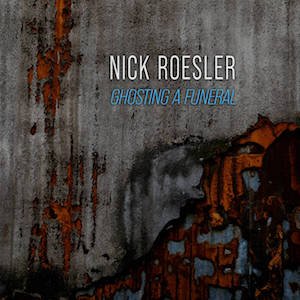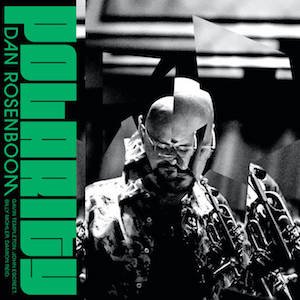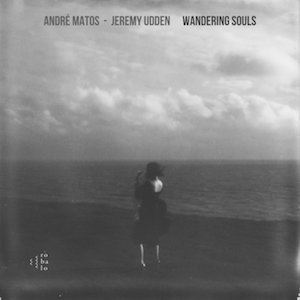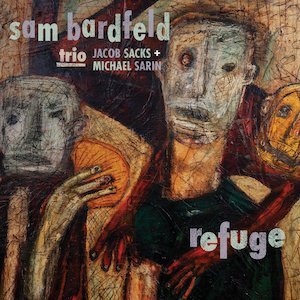Label: Self released, 2023
Personnel - Nick Roesler: guitar, piano, synth, electronics; Dave King: drums.
Multi-instrumentalist and composer Nick Roesler (Chicane Theory, Porcupine) from Minneapolis releases Ghosting a Funeral, an atmospheric duo album woven alongside excellent drummer Dave King (The Bad Plus, Broken Shadows, Happy Apple). They attempt to push boundaries in the dark ambient rock experimentation, passing sensations of obscurity and lonesomeness as the final result.
Opening the album, “Night Sweats” explores within the indie rock canon, contrasting atmospheric guitar and synth effects with some unexpected beats for syncopation. The chiaroscuro tonalities are seamlessly transferred to “Hall Light”, which, following in the same vein, becomes another sinister pleasure.
“Polyurethane” probes trippy sonorities, juggling odd rhythmic textures, low-pitched vibes and electronics to emulate a psychedelic electro-rock. “Elephant in the Room” boasts a stimulating motorik beat that stands out from the sustained droning carpet mounted underneath. Under two minutes long, this is the shortest piece on the album but its grittiness made me wish it were further extended and developed. King’s terrific drumming is put to good effect on “Suspended Bridge”, a pathos-driven mystery tale in which Roersler’s smoldering baritone guitar carries much of the weight. Here, the duo reaches a climax in their association.
If the title track, swept by ambient synth and guitar washes, attains an enigmatic suspension, then “Midlife Bison” enhances a five-note guitar motif by placing it on top of the layered texture. This is backed by King’s operations on the kit, including rattling percussion, thudding bass drum kicks, dry snare timbres, and opportune cymbal soaks.
Ghosting a Funeral relies on the power of mood, mixing stylistically different elements that shimmer up and drone and hum along with rhythm throbs. It will certainly create more impact on indie rock fans than jazz enthusiasts.
Favorite Tracks:
01 - Night Sweats ► 04 - Midlife Bison ► 09 - Suspended Bridge








































